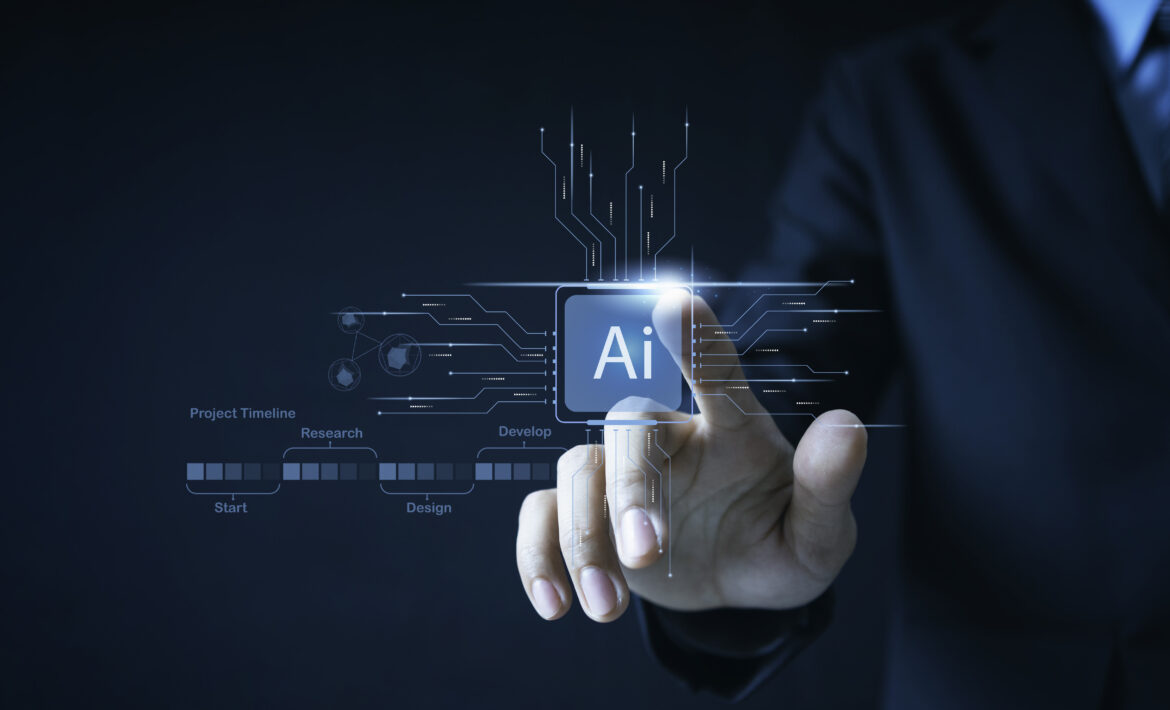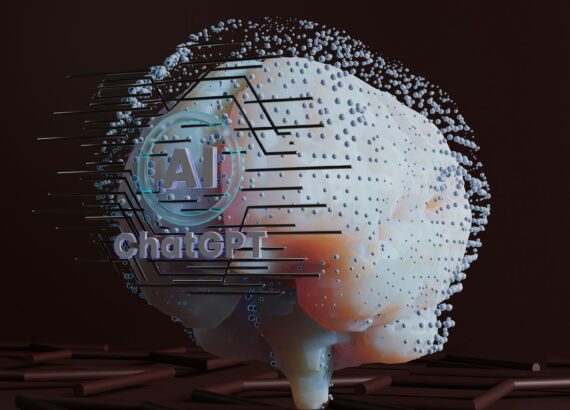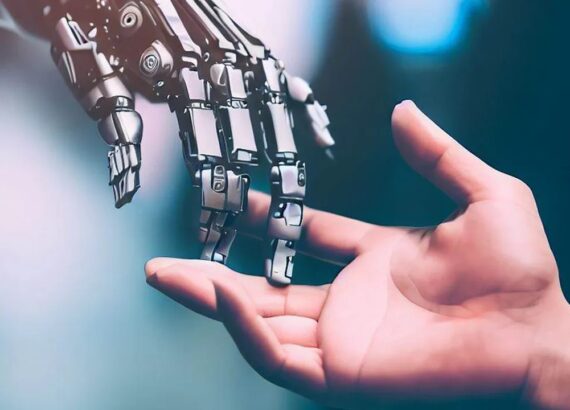Unleashing the Future: The Mind-Blowing Applications of Artificial Intelligence
Artificial Intelligence (AI) is revolutionizing the way we live and work, paving the way for a future that was once deemed unimaginable. From healthcare to transportation, AI has permeated various industries with its mind-blowing applications. This article explores the incredible power of AI and its potential to reshape our world. We delve into the impact of AI on healthcare, where it enhances diagnosis, treatment, and patient care.
Additionally, we examine how AI transforms industries, streamlining processes, and boosting efficiency. AI’s ability to personalize customer experiences is also explored, along with its influence on the future of transportation. However, as we unlock the immense potential of AI, ethical considerations and the implications for the workforce cannot be ignored. So, fasten your seatbelts as we embark on an exhilarating journey to unleash the future of AI.
1. Introduction: The Power of Artificial Intelligence
Understanding Artificial Intelligence
It has become a driving force behind technological advancements that are reshaping our world. At its core, AI refers to the development of computer systems that can perform tasks that would normally require human intelligence. But it’s not just about mimicking human behaviour; AI goes beyond that, offering capabilities that surpass what humans can achieve. From machine learning to natural language processing, AI has various branches that contribute to its vast potential.
A Brief History of AI Development
The journey of AI can be traced back to the 1950s when scientists first began exploring the possibility of creating machines that could simulate human intelligence. Over the years, AI has experienced peaks and troughs, with periods of groundbreaking innovation followed by setbacks. But today, AI is witnessing an unprecedented surge in progress, thanks to the exponential growth of computing power and the abundance of data available for training AI models. Now, AI is not just a dream of the future; it’s a reality that is transforming industries and revolutionizing our lives.
2. Revolutionizing Healthcare: AI’s Impact on Diagnosis and Treatment
AI-Assisted Diagnosis: Improving Accuracy and Speed
Gone are the days when doctors solely relied on their expertise and experience to diagnose medical conditions. AI is now stepping in to assist medical professionals by analyzing vast amounts of healthcare data and providing valuable insights. By leveraging machine learning algorithms, AI can identify patterns and anomalies in medical images, such as X-rays and MRIs, enabling faster and more accurate diagnosis. AI-powered diagnostic systems have shown great promise in detecting diseases like cancer at early stages, potentially saving countless lives.
AI-Powered Treatment Planning and Drug Development
Designing personalized treatment plans for patients is another area where AI is making a significant impact. AI algorithms can analyze patient data, including genetic information and medical records, to recommend tailored treatment options that have a higher chance of success. Furthermore, AI is playing a crucial role in speeding up the drug discovery and development process. By simulating molecular interactions, AI models can predict the effectiveness and toxicity of potential drug candidates, saving both time and resources.
AI-Enabled Remote Patient Monitoring and Care
With the rise of telemedicine and remote healthcare services, AI is playing a vital role in ensuring efficient and accurate care from a distance. AI-powered remote patient monitoring systems can continuously assess vital signs and detect any abnormalities, allowing healthcare providers to intervene promptly. Additionally, AI-powered chatbots and virtual assistants can assist patients with basic inquiries, providing them with immediate support and easing the burden on healthcare staff.
3. Transforming Industries: AI’s Role in Automation and Efficiency
Streamlining Manufacturing Processes with AI
By implementing AI technologies like computer vision and robotics, manufacturers can automate repetitive and labour-intensive tasks. From assembly line operations to quality control, AI-powered systems can improve efficiency, reduce errors, and enhance productivity. This not only leads to cost savings but also allows human workers to focus on more complex and creative aspects of the manufacturing process.
AI-Driven Predictive Maintenance in Industrial Settings
Unplanned equipment failures can disrupt operations and lead to significant losses. AI comes to the rescue with predictive maintenance, leveraging machine learning algorithms to analyze sensor data and identify potential failures before they occur. By predicting maintenance needs accurately, businesses can schedule maintenance activities more efficiently, minimize downtime, and maximize the lifespan of their equipment.
Optimizing Supply Chain and Logistics with AI
The complexities of supply chain and logistics management can be overwhelming, but AI has the potential to streamline these processes. By analyzing vast amounts of data, including customer demand, inventory levels, and transportation routes, AI algorithms can optimize supply chain operations. This leads to improved inventory management, reduced shipping costs, and enhanced customer satisfaction through faster and more accurate deliveries.
4. Enhancing Customer Experience: AI in the World of Personalization
AI-Powered Recommendation Systems
Have you ever been amazed by how accurately streaming platforms, online retailers, or music services recommend just the right content for you? That’s the power of AI recommendation systems. By analyzing your preferences, past behaviour, and similar user data, AI algorithms can suggest personalized recommendations that keep you hooked. This not only enhances your user experience but also helps businesses increase customer engagement and drive sales.
Chatbots and Virtual Assistants for Customer Support
AI-powered chatbots and virtual assistants are transforming customer service by providing instant assistance 24/7. These AI-driven conversational agents can understand natural language queries, offer personalized responses, and handle routine customer inquiries. By freeing up human support agents from repetitive tasks, AI chatbots ensure faster response times and improve overall customer satisfaction.
Hyper-Personalization: Tailoring Products and Services
AI is taking personalization to a whole new level by tailoring products and services to individual customers. By analyzing customer data, AI algorithms can offer highly customized recommendations, promotions, and experiences. From targeted marketing campaigns to personalized product suggestions, AI-powered hyper-personalization not only delights customers but also drives higher conversion rates and customer loyalty.
Unleashing the future, AI is transforming various aspects of our lives. From revolutionizing healthcare to optimizing industries and enhancing customer experiences, the possibilities are endless. Embracing AI opens up a world of mind-blowing applications that have the potential to shape our future in ways we have only dreamed of. So, strap in and get ready for the AI-powered ride of a lifetime.
5. The Future of Transportation: AI’s Influence on Autonomous Vehicles
Get ready to buckle up and hold on tight because artificial intelligence is about to revolutionize the way we get around. Autonomous vehicles, powered by AI, are set to transform the future of transportation, bringing with them a whole new level of convenience and safety.
Autonomous Driving: Advancements and Challenges
Picture this: you’re sitting in the driver’s seat, but you’re not driving. Instead, your AI-powered car is taking the wheel, navigating through traffic, and getting you to your destination. With advancements in AI technology, autonomous driving is becoming a reality. However, it’s not without its challenges. Ensuring the safety and reliability of self-driving cars is a top priority, as is addressing legal and ethical considerations.
AI for Smart Traffic Management and Predictive Analytics
AI is not just about autonomous cars; it’s also about making our roads smarter and more efficient. From optimizing traffic flow to predicting congestion and accidents, AI can help transform our current traffic management systems. By analyzing vast amounts of data and using predictive analytics, AI can provide real-time insights to help us make informed decisions and keep our roads safer and congestion-free.
Next-Gen Transportation: Drones and AI Integration
Forget about traditional delivery methods. The future of transportation includes the use of drones, seamlessly integrated with AI. From delivering packages to conducting search and rescue missions, drones powered by AI can navigate through complex environments and perform once unimaginable tasks. With AI at the helm, the possibilities for next-gen transportation are virtually limitless.
6. Ethical Considerations: Balancing the Benefits and Risks of AI
As we step into this AI-driven future, it’s important to have a serious discussion about the ethical implications of these technologies. While AI brings numerous benefits, it also poses risks that need to be carefully managed.
Ensuring AI Transparency and Accountability
One of the key ethical considerations is ensuring transparency and accountability in the algorithms and decision-making processes of AI systems. It’s crucial to understand how AI arrives at its conclusions and to prevent biases and discriminatory practices from creeping into the system. Transparency and accountability are essential for building trust and ensuring fairness.
Addressing Bias and Fairness in AI Algorithms
If the data contains biases, the AI algorithms will reflect those biases and perpetuate them. It’s crucial to address these biases and ensure fairness in AI algorithms to avoid any unintended harm or discrimination.
Privacy and Security Concerns in AI Applications
With the increasing use of AI, there are legitimate concerns about privacy and security. AI systems often rely on vast amounts of personal data, and safeguarding that data is of utmost importance. Striking the right balance between utilizing data for AI advancements and protecting individuals’ privacy is a challenge that needs to be tackled head-on.
7. Implications for the Workforce: AI’s Effect on Jobs and Skills
The rise of AI has sparked fears of widespread job displacement, but the reality is more complex. While AI will undoubtedly automate certain tasks, it also has the potential to create new opportunities and reshape the workforce.
Automation and Job Displacement: Myth vs. Reality
There’s a common misconception that AI will replace humans in its entirety, leaving us jobless in a sea of robots. However, history has shown us that technological advancements often create new jobs and industries. While some roles may become automated, AI can also enhance human capabilities and create new avenues for employment.
To successfully navigate the AI-driven economy, reskilling and upskilling the workforce are crucial. While certain jobs may become obsolete, new jobs will emerge that require a different skill set. By investing in education and training programs, we can equip individuals with the skills needed to thrive in this new era.
Collaborative Intelligence: Humans and AI Working Together
Instead of perceiving AI as a threat, we should embrace the concept of collaborative intelligence. By working alongside AI systems, humans can leverage their creativity, critical thinking, and emotional intelligence to solve complex problems and drive innovation. The key lies in finding the right balance between human expertise and AI capabilities.

8. The Road Ahead: Harnessing AI for Social Good
Finally, let’s not forget the immense potential of AI to make a positive impact on society. From revolutionizing healthcare to addressing environmental challenges and transforming education, AI has the power to improve lives and create a more sustainable and equitable future.
AI in Healthcare: Revolutionizing Diagnosis and Treatment
From diagnosing diseases to predicting patient outcomes, AI-powered systems can analyze vast amounts of medical data and provide invaluable insights to healthcare professionals.
AI for Environmental Conservation and Sustainability
The fight against climate change and environmental degradation requires innovative solutions, and AI can play a crucial role in addressing these challenges. From managing energy resources to monitoring and protecting ecosystems, AI-powered systems can help us make more informed decisions and work towards a more sustainable future.
Education is another area where AI has the potential to revolutionize the learning experience. By leveraging AI technologies, personalized learning platforms can adapt to each student’s individual needs and pace, enhancing their educational journey. Additionally, AI can assist teachers by automating administrative tasks, freeing up more time for personalized interaction with students.
As we unleash the power of AI, it’s important to approach these advancements with a mixture of excitement and caution. By addressing ethical considerations, preparing the workforce, and harnessing AI for social good, we can shape a future where humans and AI coexist harmoniously, driving us towards progress and innovation.
Conclusion
In conclusion, the mind-blowing applications of artificial intelligence are reshaping our world in ways we never thought possible. From revolutionizing healthcare to transforming industries and enhancing customer experiences, AI is at the forefront of innovation. As we navigate the ethical considerations and address the implications for the workforce, it is clear that the road ahead is both promising and challenging. The potential of AI is boundless, and as we continue to unleash its power, we must ensure responsible and ethical use to create a future that benefits all. Brace yourself for a future where the unimaginable becomes reality, as artificial intelligence continues to shape and redefine our world.
FAQ
1. How is artificial intelligence revolutionizing healthcare?
Artificial intelligence is revolutionizing healthcare by enhancing diagnosis and treatment accuracy, enabling personalized care, and empowering remote patient monitoring. AI algorithms can analyze vast amounts of medical data, aiding in the early detection of diseases and suggesting effective treatment plans. Additionally, AI-powered devices enable real-time monitoring of patients’ vital signs, providing timely interventions and improving overall healthcare outcomes.
2. What industries are being transformed by artificial intelligence?
Artificial intelligence is transforming various industries, including manufacturing, supply chain, logistics, and customer service. AI-driven automation streamlines manufacturing processes, improving efficiency and reducing costs. In supply chain and logistics, AI optimizes routes, predicts demand, and enhances inventory management. AI-powered chatbots and recommendation systems are also revolutionizing customer experiences by providing personalized recommendations and efficient support.
3. What ethical considerations are associated with artificial intelligence?
As artificial intelligence advances, ethical considerations become crucial. Transparency and accountability in AI algorithms are important to avoid biased outcomes. Ensuring fairness, privacy, and security are also key concerns. Additionally, ethical discussions surrounding job displacement and its impact on the workforce are important to navigate as AI continues to evolve. Striking the right balance between harnessing the benefits of AI and addressing these ethical concerns is a critical challenge.
4. How will artificial intelligence impact the future of transportation?
Artificial intelligence is set to transform the transportation industry through the development of autonomous vehicles, smart traffic management systems, and integration with drones. Autonomous vehicles have the potential to increase road safety and reduce traffic congestion, while AI-powered traffic management systems enable real-time monitoring and optimization. Furthermore, the integration of AI with drones could revolutionize delivery services and provide innovative solutions for transportation in the future.
Thank you for reading 🙂
Get up to 70% Discount on Amazon Electronic Products
If you want to build your website at an affordable price contact: www.nextr.in
Read this: Top 8 Apps Every Entrepreneur Needs














